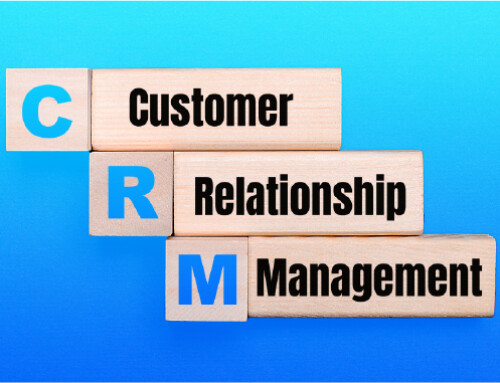Contents
“How to answer a phone call professionally?” The question seems easy enough, I mean, you’ve already been doing that for a while, right? Well, as with everything else, there are little bits of know-how that can set you apart as a professional and make a better impression. Deciding on your business phone etiquette is also going to help when your employees pick up the phone. So, even if you’re running your startups solo, you will need to establish some guidelines for when you grow your business.
That’s why I’ve created this guide, actually. You can follow the steps to more professional communication and customize the business phone tips to create your own perfect solution to “how to answer a phone call professionally.” Let’s not drag this on and get to the goods.
How to Answer a Phone Call Professionally in 7 Steps
The Three-Ring Rule
Let’s start with the ringing phone — even before answering a professional call, there are important business phone etiquettes you need to consider. So, the phone starts to ring and you want to pick it up. How long should you wait? Wouldn’t pick up as soon as possible send the wrong signal? Then again, let it ring too long and you’ll be implying you don’t value them.
So, what’s the magic number here? Like most of the time in stories, the answer is three. Picking up your business phone on the third ring is a best practice rule that costs nothing and has proven benefits. Whether the caller is a lead, customer, or a partner company, considering this rule is going to improve your image and give you a better chance at success, even if it does seem trivial.
The problem though is staying focused on the phone and counting the rings, which is not really a productive use of time. That’s even in best-case scenarios where you’re standing by the phone and are not doing anything else. If you’re a new startup, a small business owner with just a couple of employees, or a solo entrepreneur, the odds of that are really low. That’s why RunSensible’s Dedicated Business Phone lets you customize your ring rules and pick-up policy.
Always Answer
Always pick up the phone. Quickly. Whatever the case may be. You should never send a caller to voicemail, whether it is a sales or service call. Your employees must respond to customer inquiries directly and quickly. But here’s a question — who should pick up the phone first? Imagine a sales call coming through; which one of your employees should it be assigned to? What if they don’t pick up by the end of the third ring? Maybe you want your secretary to step in if there’s no one else around? These questions make up your call pick-up policy. Of course, if you leave this up to the guesswork of your team, your calls won’t be handled the way you want. There is always the possibility of human error and with a small team, chaos will be inevitable. Unless, of course, you use the right tool, like RunSensible’s Business Phone, which lets you set your pick-up policy and let your platform automatically take care of incoming calls just the way you want. So, the question of how to answer a phone call professionally has to be completed by asking what tools you need to do that.
Check before Transferring
Never transfer a caller to someone else’s extension or voicemail box. That is simply unacceptable etiquette. Before the call is transferred, the person answering the phone should always ensure that the recipient will answer the phone. If no one is present, politely tell the caller, “I’m sorry. Bob is not at his desk. Would you like me to take a message, leave a voicemail, or is there anything else I can do for you?”
Standardize Your Script
You should have a standard phone answering script that is the same no matter who answers the phone. “Thank you for calling Company ABC, this is Mary speaking,” for example. “How can I assist you today?” Sure, it may sound too familiar and cliche, but it is a cliche for a reason — we are, after all, discussing how to answer a phone call professionally. That makes more sense if you’re a B2B company. Reception etiquette is critical because this is the first person with whom your potential customer will interact. That impression.
Good Vibes
Whoever answers the phone should always be cheerful. The smile on the other end of the phone is audible to your customer. Nothing is worse than calling and getting a grumpy person with bad manners who would rather be doing something else.
Use a Greeting with Your Own Voice
Every employee in your company should have a properly configured voicemail greeting. Nothing is more annoying than hearing the system respond with an automated voice. Everyone should have their own personalized voicemail box greeting. This should also sound professional.
On-Hold Limbo
Finally, every caller’s inevitable nightmare — being put on hold. We have all experienced the unbearable waiting and I’m sure there is no one who would say they didn’t mind. Still, there are ways to make the on-hold limbo less excruciating. A tolerable holding will definitely impact your sales as well as customer satisfaction. That’s why this is one of the
Keep in mind, however, that if you have a startup or a very small business, you can probably do without this step — after all, how many call transfers are possible with a handful of employees?
What does the caller hear when you put them on hold? Is it a beep-beep or music that they hear? What kind of music do they hear if they hear music? If you must place someone on hold, the proper hold procedure in a call center or at the reception level is to say, “Can I place you on hold for a moment?” Then, ensure that it is brief (under one minute). Anything more, and you risk losing the customer.
Business Phone Do’s and Don’ts
The method of communication you choose should be appropriate for the audience, situation, and nature of the message to be communicated. A phone call is often the best way to communicate. Other times, an instant message or SMS will suffice to complete your task. And, on occasion, email is the best option (though it is too often abused). When you do decide to use the phone to communicate, make sure to follow the do’s and don’ts listed below because every call counts.
Telephone Do’s
#1 When answering a business phone, it is critical that it not ring more than three times. Inform employees that picking up the phone on the second or third ring is the best time.
#2 When answering the phone, use a positive greeting such as “Hello,” “Good Morning,” or “Good Afternoon,” etc. Following the greeting, the person answering the phone should state his or her name as well as the name of the company or organization being contacted.
#3 Smile before making or answering a phone call. When a person smiles, the sound of his or her voice changes, making it more pleasant and friendly. The phone should be held two fingers away from the mouth for clarity.
#4 Speak in a clear tone that is neither too loud nor too soft. Words should be enunciated and spoken slowly enough for people to comprehend what is being said to them.
#5 If you must place someone on hold, ask for permission first and give them the option of leaving a voicemail message. Thank the caller when you take them off hold to show that their time is valued.
#6 When a caller is speaking, pay attention to what he or she is saying without interrupting.
#7 When making a phone call, always state your name before asking for the person to whom the call is directed.
#8 Always return phone calls if one has been promised. If a time frame is specified, the caller must make every effort to return the phone call as soon as possible within that time frame.
#9 If it is necessary to transfer a call, notify the person on the other end first. It is also necessary to explain why the transfer is necessary.
#10 Confirm that the person to whom the call is being transferred is available before transferring the call. The name of this person should be given to the party being transferred.
Telephone Don’ts
#1 When answering the phone, a person should never answer on the first ring. Callers are caught off guard because they are not expecting this.
#2 Do not answer the phone if you are eating, chewing, or drinking. If a person has anything in his or her mouth, it should be swallowed or removed before answering or placing a call.
#3 If you have to leave the phone, never leave the line ringing. Instead, put the person on hold and call him or her back frequently, preferably every 45 seconds.
#4 Never say “I don’t know” when talking on the phone with someone. “I’ll check on that for you,” is the ideal response to a question with no definite answer.
#5 Never say anything that could be construed as rude to a client or customer. The person who answers the phone should always speak to the caller in the manner in which he or she would like to be spoken to.
#6 Slang should never be used when speaking to a caller. According to Federal law, swear words should never be used and may be illegal in certain circumstances.
#7 Arguing with a caller is never acceptable.
#8 Never transfer a call without first informing the person on the other end of the line and obtaining their permission.
#9 When ending a phone call, do not hang up without saying something positive, such as “Thank you for calling” or “Have a Nice Day.”
The Importance of Professional Phone Etiquette
It is critical to have proper business phone etiquette. It is frequently the first point of contact between you and your customers that creates the first impression, and it can help boost customer loyalty. Answering calls and taking messages quickly demonstrates competence and makes your customers feel cared for. Listening carefully before responding demonstrates patience and authenticity, which strengthens customer relationships. Asking the right questions is also part of good phone etiquette, as it allows you to determine whether or not your customers are satisfied.
How Does Business Phone Etiquette Affect Revenue?
Satisfied customers frequently spread the word about great customer service, which could lead to more business for you. Alternatively, if they have received poor service, they may share their disappointment and jeopardize your profits. Your company may also receive positive or negative customer service reviews on social media or online. Negative online publicity can harm your company’s reputation and cause you to lose both current and prospective customers, reducing revenue. In fact, poor business phone etiquette can lead to a company’s closure. Effective advertising is similar to good online publicity. It brings in new business opportunities and customers while increasing business and revenue from existing customers.
The Dangers of Bad Business Phone Etiquette
Customers frequently hang up when their calls are not returned promptly, directing them to your competitors instead. You may lose a customer if you do not take a message when a customer calls and the person they are looking for is unavailable. Failure to respond politely with a proper greeting demonstrates poor business phone etiquette and may discourage callers from doing business with you. Prematurely terminating calls is also poor phone etiquette, and may result in disgruntled customers. If you are unable to speak for the duration of the call, ask the customer for a convenient call-back time instead.
How to Answer a Phone Call Professionally — the Answer
Now that you’ve read all the basics of how to answer a phone call professionally, it’s time to make sure you can actually put them to use. In fact, some of the steps we looked at can’t be properly followed without a business phone management software like RunSensible. RunSensible is a complete business solution for startups and small businesses trying to grow and go online. The business phone is only one of the features you’ll get when you sign up for RunSensible — for free.
FAQ
What is the best phrase to answer a phone call as a professional?
Perhaps the time-tested “Hi, and thank you for calling” is still the best phrase to answer a phone call professionally.
Who should answer incoming sales calls?
Depending on the size of your business, it can be you, your salesperson, or anyone on the sales team. When there is more than one salesperson, deciding who picks up the next call should be automated using the business phone and call tracking software.
How can I ensure my incoming call won’t ring more than three times?
To make sure everything is going according to your business phone pick-up policies, you need a business call software or VoIP CRM like RunSensible.
Disclaimer: The content provided on this blog is for informational purposes only and does not constitute legal, financial, or professional advice.






